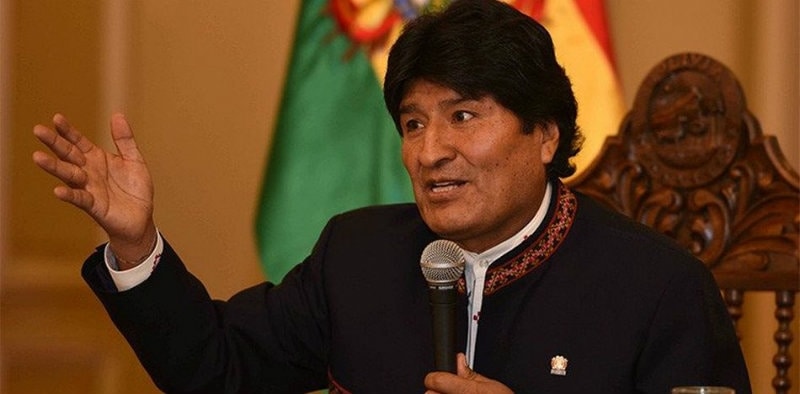
LA PAZ – Bolivia’s President Evo Morales said on Wednesday his administration would not continue to pursue a sea-access case against Chile at the International Court of Justice (ICJ) if Santiago agreed to enter into good-faith negotiations to resolve the dispute.
Morales addressed the matter at a press conference, saying that a Chilean presidential candidate suggested that Bolivia halt the proceedings at The Hague, Netherlands-based tribunal as part of a quid pro quo.
Morales confirmed that Progressive Party candidate Marco Enriquez-Ominami told him that if he is elected in November Chile would drop a lawsuit against Bolivia before the ICJ over a water dispute, provided that La Paz in turn ended its legal action to reclaim access to the Pacific Ocean.
“If there’s a serious commitment to engage in talks on these issues with time, with guarantees … the lawsuits will automatically be brought to a standstill,” Morales said.
The ICJ agreed to hear the sea-access case in September 2015, rejecting Chile’s argument that the character of Bolivia’s access to the Pacific Ocean had been settled by a 1904 treaty.
That treaty was signed more than 20 years after the end of the War of the Pacific, in which Chile defeated Peru and Bolivia and wrested territory from its neighbors.
The World Court agreed with Bolivia that it had jurisdiction to hear the case because Chile had an obligation (existing independently of the treaty) to negotiate in good faith Bolivia’s sovereign access to the Pacific under “agreements, diplomatic practice and … declarations attributable to Chile” spanning more than a century.
Bolivia lost 400 kilometers (250 miles) of coastline and 120,000 sq. kilometers (46,330 sq. miles) of territory to Chile as a consequence of its 1879-1880 participation in that armed conflict.
Chile, for its part, filed suit against Bolivia last year before the ICJ, the United Nations’ highest court, arguing that it should be granted usage rights to the Silala River.
Santiago says the Silala is an international watercourse and that it is entitled to “equitable and reasonable” use of those waters, but Bolivia maintains the Silala waters are underground springs that were artificially diverted to northern Chile and are being used in that country without any compensation paid to La Paz.



